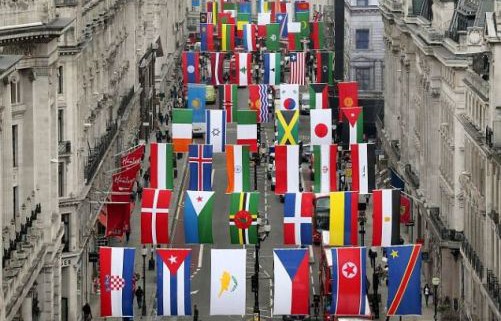London and ‘foreign’ languages how the city has transformed?
As one of the world’s most diverse cities and one of the biggest financial capitals in the wold it is no wonder why London is one of the most desired cities to live and work. From its signature landmarks like big ben, Buckingham palace and Trafalgar square, to the vibrant central London which never sleeps it is no wonder London welcomes tourists in excess of 16 million per year. Being home to 8.6 million people, a record high as of 2015 London shares its glory with around 270 nationalities of whom between them speak over 300 languages. Over the years as a result of mass immigration this has seen an increase in translation services being utilised by the general public which has caused some controversy. In addition the foreign born population accounted for around 36.7 percent according the 2011 census, making London one of the most diverse cities in the world.
Immigration has always been a big part of British history and as such there are many reasons why London in particular is as culturally diverse as history teaches. People from all over the world came to Britain for many reasons. From the Jewish people immigrating to Great Britain during the middle ages to the West Indian’s who were recruited to come and work for the British transport system and hospitals amongst many other industries, whilst others returning soldiers who fought for great Britain in the second world war or Indian people brought in to help rebuild England after the second world war. Many of these groups settled in London and that is a reflection of what London is today.
Travelling on the London tube you are bound to hear many languages being spoken around the city. The guardian has created several infographics illustrating London’s second languages mapped by tube stop (http://www.theguardian.com/news/datablog/2014/oct/30/-sp-londons-tube-languages-visualised).
The results depicts that the most spoken language after English in London is Polish, which is also considered by many as not only London but England’s second language. In London this is followed by Turkish, Bengali and French respectively. The influence of the polish language in London can be attributed to Great Britain joining the euro zone as a result allowing all member states visa-free access to the UK. This of course has created a lot of controversy among the British and one which stands out is the use of polish translation services for non-English speaking Poles which in certain instances such as legal proceedings a qualified translator may be required which may sometimes be funded by taxpayers.
It is interesting to see how different languages have influenced London and what positives and negatives such change brings. One thing is for sure London will never be a complete English speaking city and more and more people will continue to infuse this great city with the most remote of language in the coming future. All we can do is watch what the future holds for languages in London.




